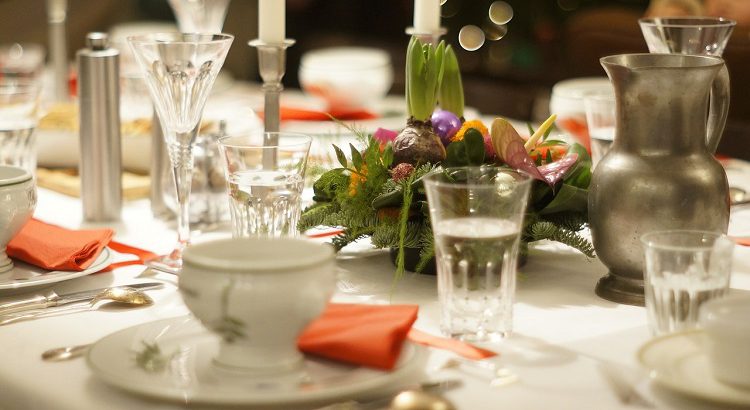In general, Americans tend to gain weight between Thanksgiving and New Year’s. Why not start implementing some basic lifestyle changes now, not only to prevent unwanted weight gain, but to potentially lose weight! There’s no need to wait until after New Year’s to make that resolution. You can approach healthy holiday eating from three perspectives: before, during and after your meal.
Before Your Meal
“If you fail to plan, you are planning to fail!”—Benjamin Franklin
Set yourself up for success—start with a healthy mindset. Thoughts such as, “I’ll eat what I want; the holidays only come once a year” and “I will eat now and start ‘dieting’ after the New Year,” just set you up to fail!
Numerous studies have now proven that diets don’t work. The proven way to lose weight and keep it off is through lifestyle change, which occurs gradually.
Some positive steps include:
- Exercising in the morning has been shown to positively impact our eating choices throughout the day.
- Don’t skip meals, trying to “save up” for dinner. Eating when overly hungry results in overeating. Instead, eat normally, and focus on fruits, vegetables, whole grains and lean proteins. Drink lots of water throughout the day.
- If multiple people are contributing food for the meal, search for healthier side dishes and dessert recipes and share with family and friends. Ask them to choose a recipe to prepare.
- If preparing the entire meal yourself, look for healthier options to your traditional recipes, be creative with spices and choose healthier fats. Don’t eat as you’re preparing the meal. It’s easy to lose track of how many calories you consume if you nosh during meal prep.
- Plan a post-meal activity, such as taking a walk, playing with the kids, partaking in a family softball game or going bowling—anything to get everyone up and moving. You are less likely to overeat if you’ve committed to an activity after dinner!
During Your Meal
Be mindful during your meals by:
- Choosing healthier options for appetizers. Bring a healthy appetizer or choose those that are high in nutrient density and low in fat, such as fruits, vegetables, nuts or shrimp cocktail.
- Staying away from breads and rolls with meals.
- Starting with the healthier food items first. Eat your vegetables and lean meats before eating your starchy and fatty foods.
- Perusing the offerings first before picking up your plate (if a buffet-style meal). Keep your portion small; remember, everything in moderation
- Eating slowly. This allows sufficient time to tell the brain you’re full, which takes at least 20 minutes, to prevent overeating.
- Drinking lots of water.
- Taking one reasonable serving and not going back for seconds. Everything in moderation.
- Being mindful of alcohol consumption. Not only does it contribute non-nutritious calories to your diet, it tends to encourage overeating.
After Your Meal
Several strategies are available to help you stay on track by removing temptation:
- When you’ve finished your plate of food, don’t be tempted by the serving dishes staring you in the face. Distract yourself by offering to help clear the table or serve coffee.
- For the dessert course, don’t put pies and cookie platters on the table. After all, ‘we eat with our eyes.’ Use the three-bite rule. Take a portion size that can be eaten in three bites.
- Immediately following your meal, eat a mint or chew gum. You will be less likely to eat more.
- Exercise willpower! Like everything else, the more you use it, the better you get!
And always keep in mind that eating is only one component of the holiday experience. Be sure to enjoy the company of your friends and family!
Registered dietitian Barb Walsh is the community nutrition educator at the Tevis Center for Wellness.
